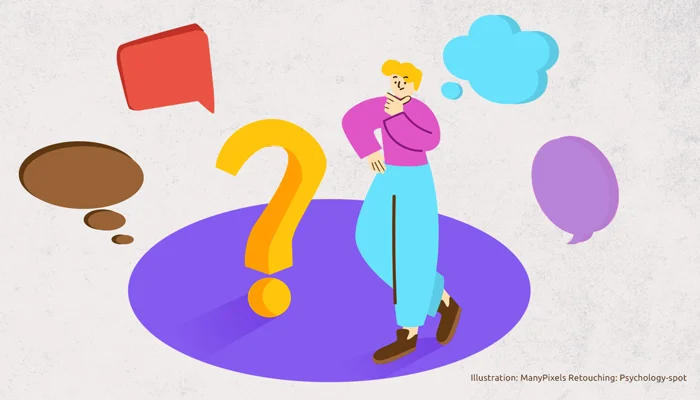
At some point in life most people quit asking questions. That curiosity they had when they were children disappears. It occurs a very important change in them: they stop questioning things and begin to accept them passively. Right then the critical thinking is turned off and starts the autopilot. So they condemn themselves to stagnation and dissatisfaction because we can’t grow if we know the answers before asking questions.
Each question is a world of new possibilities to discover
Certainties keep you where you are, doubts open new roads. Each question is an open door or a wall that crumbles; it allows you to see beyond, to go beyond.
Harboring a question means that you managed to get out of limits and tries to see things from another perspective. Every question contains always the seeds of growth. And also for this, sometimes are not so important the answers, the important thing is you have opened your mind a bit more and you are getting a new chance you couldn’t see before.
And interestingly, when you start asking yourself new questions you cannot go back. When you realize how much it can expand your mind a simple question you begin questioning everything. At that point the possibilities that previously were very limited are virtually endless. You become a freer and creative person, because finally you realize that the fact things have always been done a certain way does not mean it’s the only way possible. You free yourself from the constraints that society has imposed to you and you have accepted for years.
When this quantum leap occurs you find yourself a passion for life, because you return to have the attitude of a child who has a whole world in front of him to discover. When you realize that the answers you received were not enough and you have the courage to bring your own questions, it’s like going back to be born again, but this time appointing your own rules. And this is a priceless gift that you do to yourself.
Retrieve the “why” of childhood
All children go through the “why” phase. This phase shows up from 2 to 4 years of age and indicates that the child is trying to actively learn about the environment. Through these questions children try to understand the world and give it a logical sense. Indeed, their questions reflect the development of thought and intelligence. The child wants to know, beyond what he sees, of what things are made, why are like that and what are made for.
The precious side of this stage is that children do not have any taboos. They can ask anything, things that to adults seem absurd. However, the fact is that often adults are struggling to satisfy the curiosity of children, because they do not know themselves the answers.
At that moment something happens in the adult mind, he realizes that once he too was like that, and probably asked the same questions, but received no response. He also realizes that growing up, he did not worry to find those answers, probably because someone told him that those questions were meaningless. Recognizing this reality is too painful, so adult end up merely repeating the learned model, and tells children that its application does not make sense. In fact, the philosopher Fernando Savater once said: “the problem is not the questions children ask, but rather what we must ask ourselves later”.
However, growing up we must recover this curiosity, because only in this way we see the world differently. And the best way to do that is to return using the magical “why”.
Asking the “why” of things is an excellent strategy to stimulate thinking and creativity, to go beyond the rules, challenge the status quo and think outside the box.
Start asking yourself questions, without fear that they may seem ridiculous or inadequate. Put into question everything, even those things you’ve always taken for granted, or that considers absolute truths.
The most interesting thing about this process is that you do not even need to find some answers. Indeed, this is not the goal, the idea is to simply activate your thinking and lead it to a completely new direction. At the beginning you’ll discover interesting things about your environment and the society, and then you will meet interesting things about you. Then you won’t come back because you have embarked on the path of self-determination.



